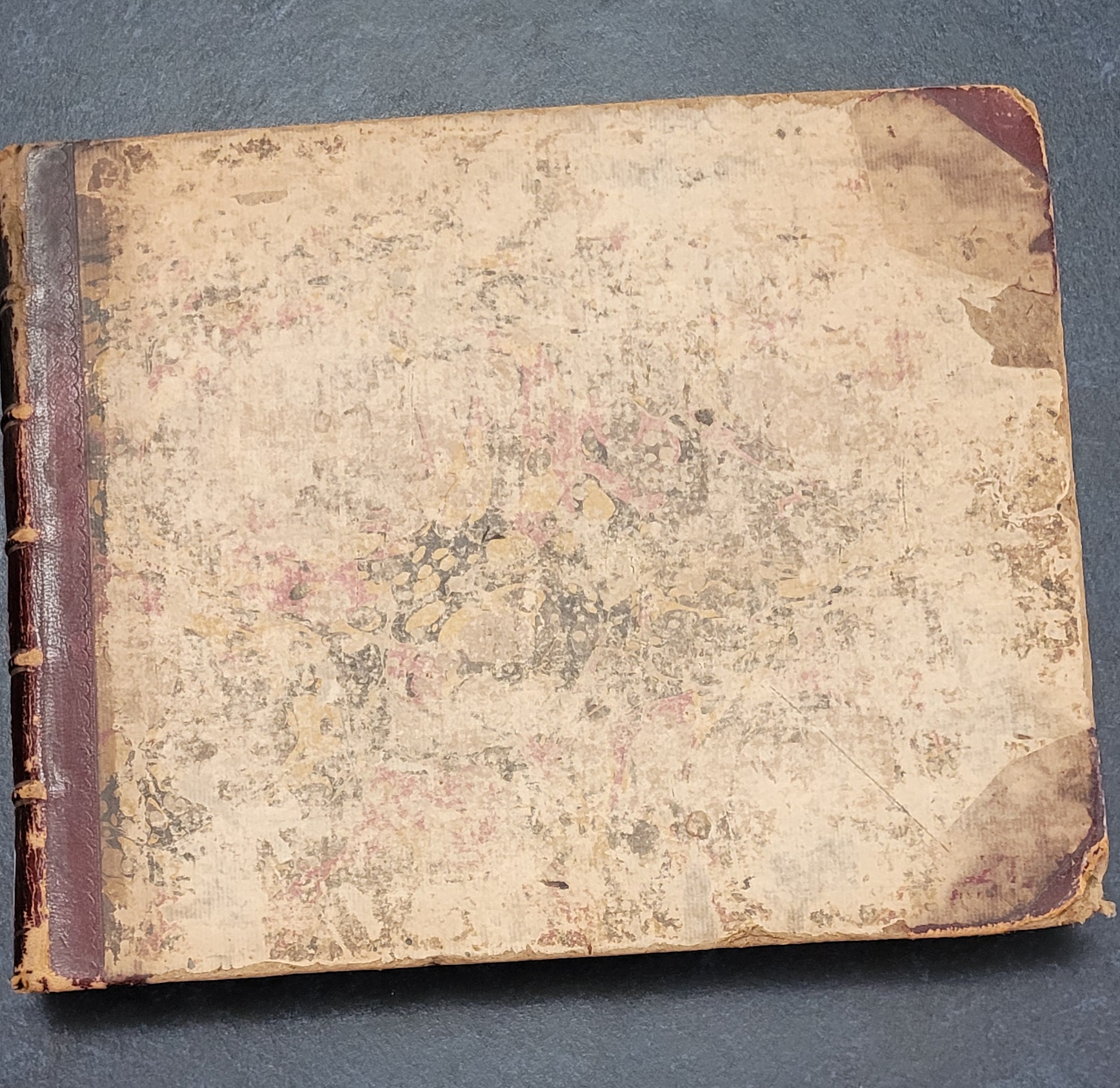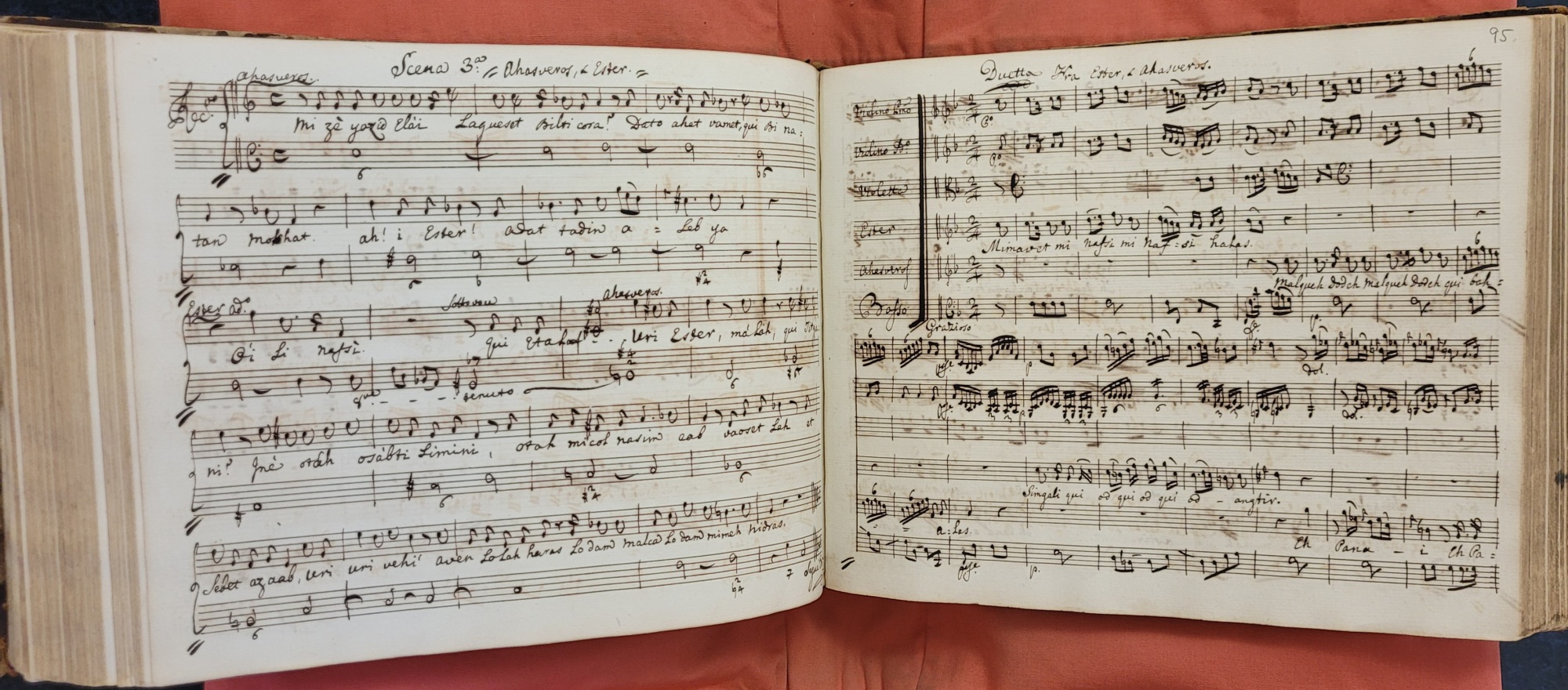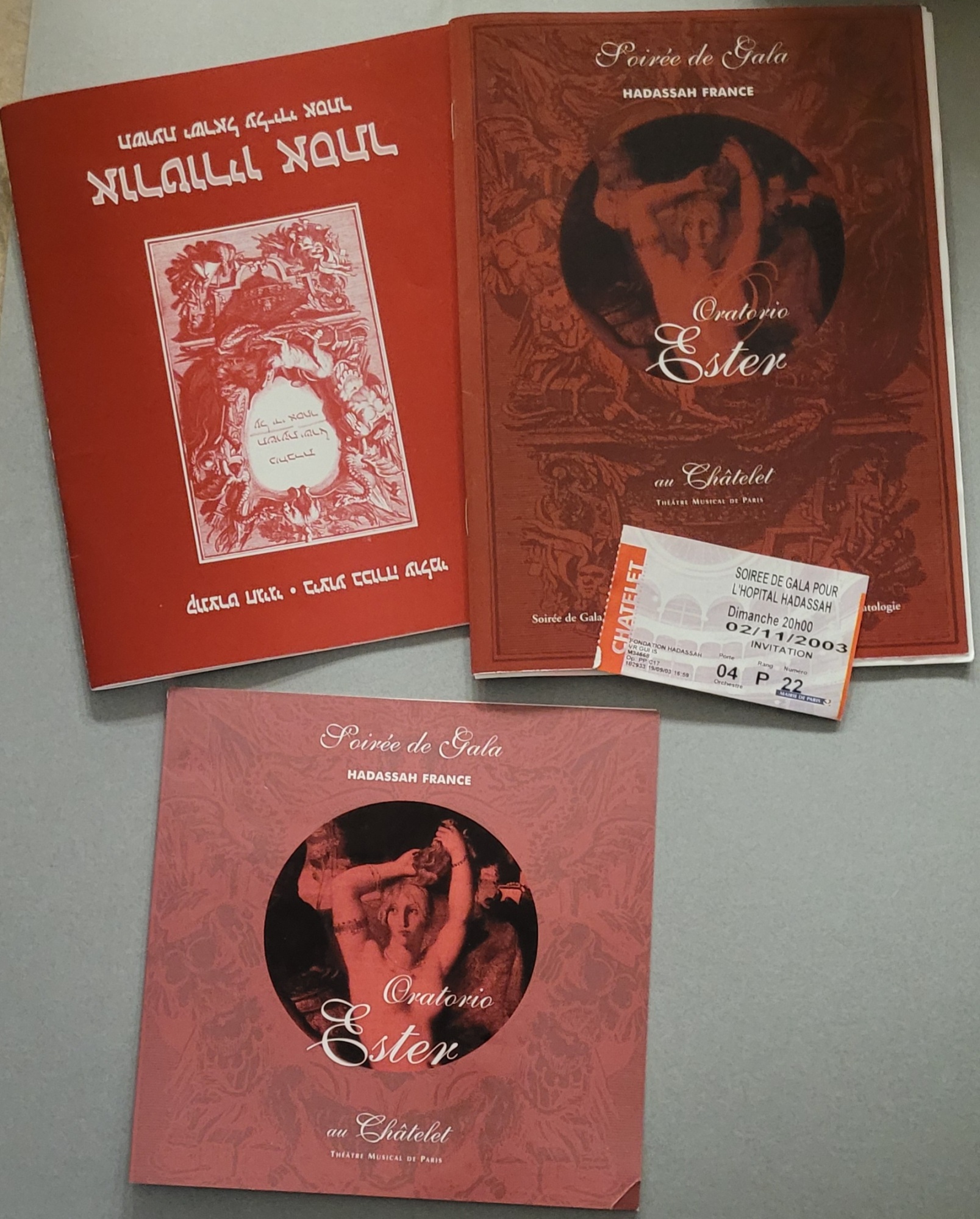Last weekend I was listening to Music Matters on Radio 3, and suddenly sat bolt upright, when I heard that the oratorio, Ester by Cristiano Giuseppe Lidarti, was to receive its UK premiere on Sunday 13th March. When I started work at the UL in 2002, Ester was the stuff of legend in the Music Department. It was one of those works, which would almost certainly have been lost, or at least its importance overlooked, if it hadn’t been for the shrewdness of a music librarian. This is the story of its discovery in the words of the former Head of the Music Department at Cambridge University Library, Richard Andrewes.


“On the 7th November 1997 the Library received “List 320” from the second hand music-dealer “William Reeves, Bookseller”…amongst them was item no. 2430:

My interest was sparked on several counts. In my work on musical manuscripts I had occasionally come across the name Francois Hyppolyte Barthelemon, as a composer, copyist and owner of manuscripts. He was a French violinist who had settled in London, and was obviously a collector too. Secondly, the ‘A.W. Henslowe’ was really ‘C.M. Henslowe’, i.e. his daughter Cecilia Barthelemon, who was a significant woman composer in her own right, and had published some excellent piano sonatas before her marriage [Cecilia’s mother, Mary (Polly) Young was also well known as a singer and composer]. Thirdly it was an Italian oratorio, of which only a few are easily available in full score, mostly in the Garland series Italian oratorio 1650-1800, which this manuscript nicely complemented…
Several months passed before it was ready for full cataloguing, which should have been a relatively simple process of amplifying the brief order record already in the computer. However, while looking through the manuscript to give a fuller description of the vocal and instrumental forces I suddenly realised that the words were not Italian; nor were they French or Spanish or German. Indeed they did not look like any language I had ever seen. At this stage it was obvious that a little more research into the composer was needed. By searching the vast American online catalogues I soon discovered that Lidarti had written music to Hebrew texts, and that they had been published by Israel Adler in the series, Early Hebrew art music. With this possibility in mind I asked colleagues working on the famous Cairo Genizah fragments if they could identify whether the text of Ester was romanised Hebrew. The first opinion I had was that since the manuscript was obviously Italian, the text might be in Ladino, possibly stemming from the important Sephardic community in Livorno. In the various Jewish encyclopedias I even discovered there was a magnificent synagogue in Livorno, built in the early 18th-century, for which an oratorio such as this might have been written! This, however, proved less likely when closer examination of the text showed that it was proper Hebrew.

By now I had found Israel Adler’s important study of La pratique musicale savante dans quelques communautes juives en Europe aux XVIIe et XVIIIe siecles (Paris, 1966) [514:01.c.9.8], which actually contains most of the music in the Early Hebrew art music series. Eventually I came across a footnote about the existence in the Ets Haim library in Amsterdam of a manuscript translation into Hebrew of the libretto of the second version of Handel’s oratorio Esther by the rabbi of Venice and Mantua, Jacob Raphael Saraval [the manuscript has now been digitized and can be viewed here]. I even had a reference to a published edition (in an article by M. Gorali in the [Israeli] periodical Tatzlil [(The Chord)]. I suspected there might be a connection with my manuscript but had not yet proved it.

It was at this stage of my researches, in June 1998, that I unexpectedly met Israel Adler [then Professor Emeritus of the Hebrew University in Jerusalem] in San Sebastian in Northern Spain at the conference of the International Association of Music Libraries, Archives and Documentation Centres [popularly known as IAML (Yam-ull – rhymes with camel), it has been mentioned many times on MusiCB3]. I was very happy to be able to tell him of our manuscript, knowing that of all people he would be the most excited by its discovery. I was not mistaken, and within a few weeks he visited Cambridge, to see the manuscript for himself, and to start the work leading to the identification of its historical background and its presentation to a wider audience.”
Richard Andrewes. Cambridge, March 2000.
And so it was that a slightly bemused Cambridge librarian took a bow on a Jerusalem stage following the performance of a work that had lain silent for 200 years. As Israel Adler commented in his introduction to Richard’s article in the programme for the premiere:
“Whoever has experienced the scholar’s delight in being associated with the rediscovery of an ancient document and in bringing its contents to life again, will understand why I insisted on having Richard Andrewes, excellent Music Librarian of Cambridge University, tell his part of the story which resulted in the resurrection after more than two hundred years of the sounds of the oratorio, Ester. It all started with Richard’s alertness to one item out of several hundreds listed in a bookseller’s catalogue, which at first sight looked rather trivial. It is such typical librarian’s perspicacity, that is the making and the blessing of great scholarly institutions, among which the Cambridge University Library is one of the most outstanding. Music librarianship, in general, and Richard Andrewes in particular, deserve our gratitude for having thus served Jewish musicology.”

Many thanks to Richard Andrewes for permission to use his article from the Jerusalem premiere programme, and for his memories of the discovery of Ester.
The timing of the London premiere is particularly appropriate, as next week opens with Early Music Day on Monday 21st March, celebrating music from earliest times to the late eighteenth century. We’re delighted to open our celebrations with recollections of Ester, and will be celebrating throughout the week on social media (follow us on Facebook and / or Twitter). There is also a small exhibition in the Anderson Room opening on Early Music Day. To close the week, MusiCB3 will be hot on the trail of a character of vital importance in the preservation of Baroque violins. As you can see it’s a busy life as a music librarian.
MJ
